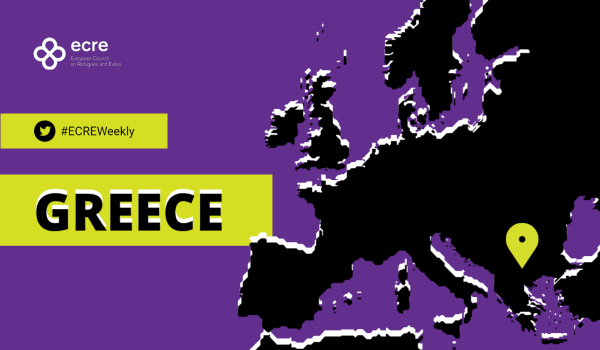In its latest crackdown on free press the Greek government has threatened Der Spiegel with legal action over its reporting of the tragic death of a child stuck on an islet in the Evros region with authorities unresponsive for an extended period despite interim measures from the European Court of Human Rights (ECtHR). Meanwhile, reports of non-response and ignoring of ECtHR as well as pushbacks continue to mount.
The freedom of press in Greece, ranked 108 of 180 countries on the 2022 World Press Freedom Index published by Reporters Without Borders (RSF), has been declining over years partly as the result of government approaches. In a response to the European Commission in relation to the ongoing wiretapping scandal around the use of spyware targeting opposition politicians and journalists, permanent representative to the EU Ioannis Vrailes refers to amendments of Greek legislation allowing such measures as a matter of national security. An amendment allegedly deemed necessary because of the instrumentalisation of migration and proven cases of espionage. The most recent example of the hostile environment for critical journalists not least when reporting on asylum and migration is the threats of legal action against Der Spiegel reporter, Giorgos Christides by the Ministry of Migration and Asylum. The threats were made in the context of Der Spiegel reporting of the death on 9 August of a five-year old girl while she was stranded along with 38 others on an islet in the Evros region between Greece and Turkiye. Reportedly, after initially being pushed forth and back by Greek and Turkish authorities. Despite interim measures by the ECtHR on 20 July initiated by ECRE member Greek Council for Refugees (GCR) and HumanRights360, indicating action from Greece, authorities rejected responsibility and the group was only rescued after great delay on 16 August.
The death of the little girl has caused a significant public outcry and Der Spiegel has faced severe pressure from the government over its reporting. The Ministry of Migration and Asylum alleges that Christidis accessed the Reception and Identification Center (RIC) of Fylakio under false pretext when he interviewed the family of the deceased girl thereby breaking rules of confidentiality. Minister of Migration and Asylum, Notis Mitarachi and Prime Minister Kyriakos Mitsotakis continues to deny responsibility and have questioned the reliability of information on the incident – the latter even the name of the dead girl although it was included in information submitted to ECtHR by GCR and HumanRights360. Local media defines the active role of top-politicians as a direct intervention into an on-going investigation by the Prosecutor’s Office into the circumstances around the tragic incident. Notis Mitarachi claimed to have alternative data before testifying in the case. Christidis has refuted all allegations and recently expressed his: “deepest thanks to the hundreds of people, from friends and Greek & foreign colleagues, to politicians, judges, MEPs, NGO actors, and many many other people” who have been contacting me since yesterday in support. The Evros region has been the scene of controversy and a long-term stand-off between Greece and Turkiye and new measures including an extension of existing border fortifications have been announced by Greek authorities.
An ever-mounting body of evidence and reports of pushbacks and lack of response to alerts for assistance including despite interim measures by ECtHR by Greek authorities have been met with deflection and denials. Over the last weeks alone the NGO hotline Alarm Phone has reported a series of incidents in the Evros region as well as the Aegean and the mainland – off Methoni cape, Peloponnisos 24 August, Samos 24 August, off Kalamata on 26 August, Mikros Kehros August 26, Farmakonisi 28 August, off Samos 30 August, off Rhodes 30 August, Peloponnese, 1 September. Further, coverage of new reports of pushback incidents continue in international media. On 24 August, Greek Minister of Civil Protection Takis Theodorikakos stated that 25,000 irregular migrants had attempted to enter Greece from Turkey between 1 and 24 August. Notis Mitarachi, told InfoMigrants the following day that 1,500 to 1,700 attempts are made daily to cross the border from Turkey. None of the two government officials explained how these statistics were compiled or how Greece prevented such attempts. However, as pointed out by InfoMigrants these figures differ widely from official UN statistics. According to the International Organization for Migration (IOM), 7,375 migrants have entered Greece since 1 January 2022 and the UN Refugee Agency (UNHCR) counted 7,936 arrivals during the same period. A recent response to questions from MEP, Erik Marquardt, European Home Affairs Commissioner, Ylva Johansson did little to clarify the position of the Commission to pushback incidents but emphasized the Greek responsibility to investigate: “Any act of violence or pushback is illegal and must be investigated by the national authorities responsible to establish the facts and take the necessary follow-up actions”. However, fundamental rights officer at the European Border and Coastguard Agency (Frontex) that has been accused of being implicated in violations in Greece stated in an interview with the Guardian: “It has been clear to me that Greece is one of the countries that needs enhanced monitoring,” he told the Guardian. “I think that what is missing now from my side, is increasing the pressure, increasing the concreteness of what I think should be done in order to prevent violations.”
For further information:
- ECRE, Greece: ECtHR Condemns Greece in Prominent Ruling, New Evidence of Pushbacks, Renewed EU Critique – Same Old Denials, Government Ignores European Courts and Continue Crack-Down on Solidarity, July 2022
- ECRE, Greece: Minister Accuses MEPs of Being Manipulated by Propaganda and NGOs of Coordinating with Human Smugglers, Reports of the Use Third-Country Nationals in Pushbacks Operations Amid War of Words with Turkiye, June 2022
This article appeared in the ECRE Weekly Bulletin. You can subscribe to the Weekly Bulletin here.

